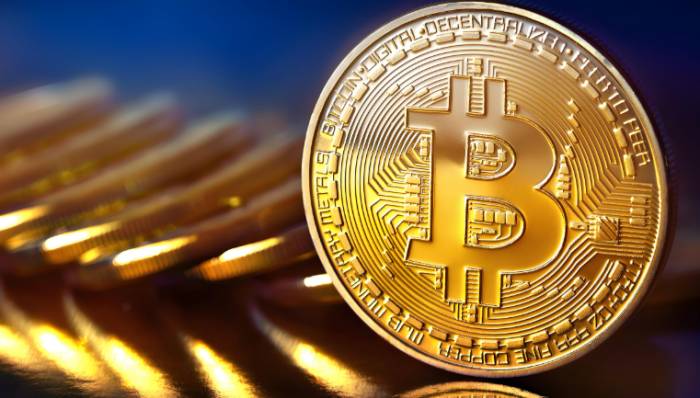Korean Turmoil Shakes the Crypto Market!
On a seemingly routine Tuesday night, South Korean President Yoon Suk-yeol made an unexpected announcement that sent shockwaves through the global financial landscape: a state of emergency was declared. This declaration not only shocked the South Korean populace but also reverberated throughout various financial markets, particularly within the volatile sector of cryptocurrency. The implications of such a drastic measure raised immediate questions about its motivations and consequences, especially regarding South Korea's prominent position in the world of digital currencies.
As the news broke on December 3, 2023, the South Korean cryptocurrency exchanges experienced an extraordinary market reaction. Typical of the highly speculative nature of crypto trading, prices plunged as market participants reacted to the uncertainty. For instance, Bitcoin, which often commands significant attention, saw its value nosedive to a staggering low of $71,814.99 against the U.S. dollar-pegged Tether, while it remained under substantial trading volumes at around $93,600 concurrently. Such price fluctuations underscore the extreme volatility that characterizes the cryptocurrency market, particularly during periods of heightened uncertainty.
Advertisement
The chaos, even if fleeting, painted an alarming picture. Reports suggested that a rush of capital flowed into exchanges as traders scrambled to capitalize on the crisis. The urgency reflected a broader trend among South Korean investors who are known for their penchant for high-risk, high-reward instruments, especially in times of economic stress. This behavior is not new; in previous financial crises, South Korean traders have turned to cryptocurrencies when traditional investment avenues faltered. This reliance on digital assets as a safe haven during turbulent times highlights the shifting landscape of investment preferences in the country.
Moreover, the trading volumes in cryptocurrencies have consistently eclipsed those of traditional South Korean financial instruments. Recent statistics from CCData and the Korea Exchange indicated a staggering average daily trading volume of approximately $9.4 billion in cryptocurrency exchanges from November 5 to November 28, a stark contrast to the daily average of $7 billion for the Kospi index, which represents the broader South Korean stock market. This revolutionary shift reflects the unique dynamics and growing mainstream adoption of cryptocurrencies in South Korea, marking the digital asset class as not just speculative tools but also as viable alternatives during periods of economic difficulty.
In light of this context, it’s essential to highlight the phenomenon known as the "kimchi premium," which has become a critical topic in conversations about South Korea's crypto market. This term refers to the noticeable price differential of cryptocurrencies, particularly Bitcoin, traded on South Korean exchanges compared to their international counterparts. As traders leverage this price discrepancy, they capitalize on the situation by purchasing Bitcoin on global exchanges at lower prices and selling them in South Korea for profit. This practice underscores not only market inefficiencies but also a fervent demand among South Korean traders for digital assets, further inflating their local prices.
The recent drop of Bitcoin prices exceeding $20,000 marks an anomaly in this landscape, striking observers as unusual given the consistent high demand. When examining various altcoins, it becomes apparent that this pricing aberration is not confined to Bitcoin alone. Notably, meme-inspired cryptocurrency Dogecoin experienced a notable dip, plunging to 34 cents on South Korean exchanges while stabilizing at approximately 40 cents globally. This pricing disparity illustrates how localized market dynamics can lead to significant differences even among popular cryptocurrencies.

Additionally, examining XRP's pricing reveals a similar trend, with local exchange rates set at $2.44, contrasted against a modest increase to $2.46 on the global stage. Although the difference here is marginal, it delineates an overarching pattern of price discrepancies across multiple altcoins within the local market. These disparities can result from various factors, including local market dynamics, regulatory influences, and unique behavioral trends among South Korean investors.
As the global cryptocurrency community analyzes these shifts, researchers and investors alike are keenly observing South Korea as a pivotal market dynamics hub. The mix of regulatory frameworks, investor sentiment, and operational practices contribute to these distinctive price trends observed within the country. South Korea's rapid adaptation of blockchain technology and investment strategies provides a case study for global stakeholders looking to understand the cryptocurrency landscape.
Such events, coupled with President Yoon's announcement, encapsulate the complexity and unpredictability inherent within financial markets today. As governmental actions intertwine with the emotional trading responses seen in cryptocurrencies, the future trajectory of these digital assets remains a topic of fervent debate. Observers remain alert to the risks and rewards that may arise in the landscape shaped by geopolitical decisions, investor behavior, and regulatory changes.
In conclusion, South Korea continues to play a crucial role in the global cryptocurrency arena, characterized by vibrant trading activities and unique pricing phenomena. Observing the reactions from this market, especially during moments of unpredictability like the recent emergency declaration, reveals much about the interconnections between traditional finance, digital currencies, and national policy. With every fluctuation and market response, South Korea’s evolving crypto landscape remains a pivotal barometer of investor sentiment and future trends in the world of digital finance.
Leave a comment